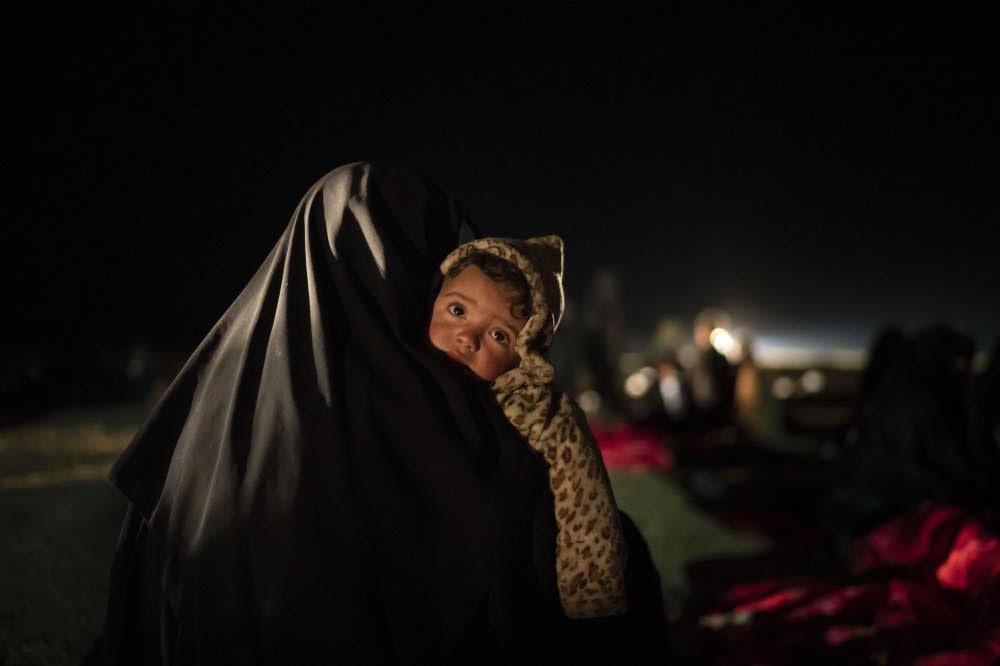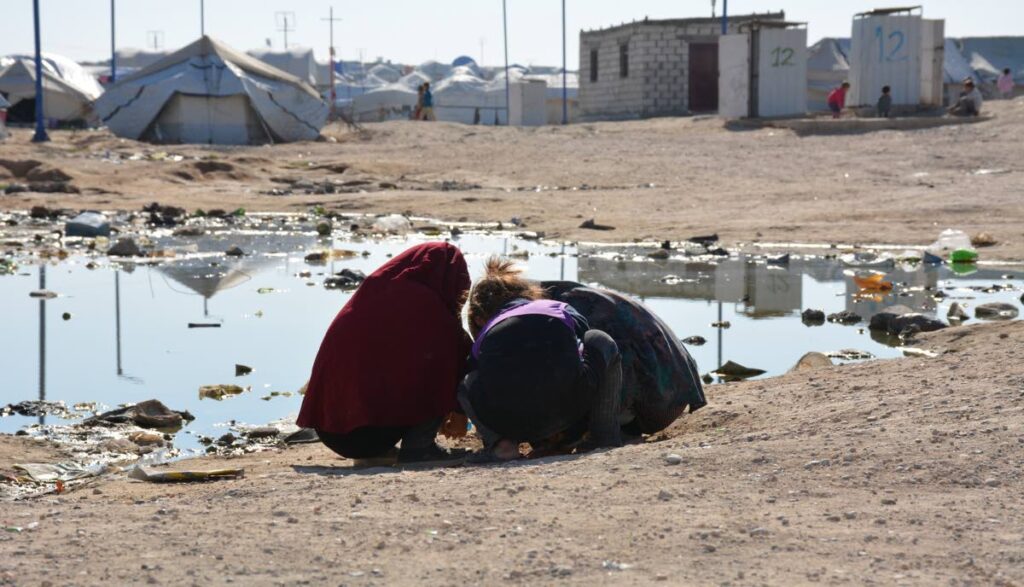'Bring our families home': New lobby for ISIS fighters' wives, children locked up in Syria

In a special report JANELLE DE SOUZA looks at the longstanding crisis of TT nationals stranded in refugee camps in Syria.
Imagine your daughters and grandchildren are locked up overseas suffering in inhumane conditions.
Imagine hearing the cries of hunger and pain over the phone, knowing you can do nothing to help them.
Then imagine no one in authority cares or is willing to do anything about it.
This is what the families of the 24 women and 74 children surviving in detention camps in Syria have been going through every day for the past three years.
Their husbands and fathers were among just over 100 people who left TT since 2014 to join the caliphate in Syria as mercenary fighters loyal to the Islamic State of Iraq and Syria (ISIS) and are now feared dead.
Amral Khan told Sunday Newsday he has two daughters in camps in Syria – one at al-Roj and one at al-Hol – as well as six grandchildren at al-Roj.
He lost a six-month-old grandchild to a harsh winter several years ago at the al-Hol camp.
He said at the camps there are food and water shortages, and no protection against the rain and sand storms as they live in tents and sleep on the ground. Another problem, he claimed, is the guards who steal what little the refugees have and the lack of medical services.
“Most of the mothers have either one hand, one leg, hip dislocation, shrapnel lodged somewhere in the body, that sort of thing. My daughter gets seizures every night as she’s about to drop to sleep but there is no medication. They went through covid without medication. And the lifestyle is just diarrhoea, vomiting and fever because they have no proper sewage system and they live with rats.
“This thing is traumatic for them and for all us old people. Going through it is not easy and we just keep begging.”
He said the families of those in the detention camps were trying to have patience and cope with the situation but whenever they do any normal activity – eating, taking a shower, going to the drug store or grocery, going to bed – they think of their family members in Syria and worry.
“They made a big mistake, some miscalculation of judgment took place, but they want to return home and fix their lives, go through the process with no quarrel with anybody. They are not going to be hurting the public.” Read Trini refugees can be part of society again here.
He said the government allowed two women and six children to return from Syria and they have settled without causing any trouble.
These include a Chaguanas woman and her two step-daughters in 2014, Tricia Peters, aka Tanya Peters, with her son and daughter in 2016, and the two sons of Felicia Perkins-Ferreira who returned to TT in 2019.

The Chaguanas woman and her step-children walked across the Syrian border into Turkey where they were shuttled further into the country. While she still had their travel documents, she had no money. The TT government sent someone to Turkey to collect them and paid for their return.
Peters spent two years in Syria before returning to TT in February 2016 with her children. Then, in March, she received a letter from the Ministry of Foreign and Caricom Affairs saying she had to repay the cost of her repatriation.
The children of Perkins-Ferreira were taken to Syria by their father who went to fight with ISIS in 2014. The boys were rescued from the al-Roj refugee camp with the help of British rights lawyer Clive Stafford-Smith and Roger Waters of the rock band Pink Floyd before being returned to TT in January 2019.
Khan continued, “Then the government stopped and said they want to pass laws. We are saying, these laws you’re trying to pass is not for these children who are looking for help, who are facing death and starvation. They had no say in this matter. Why is there no urgency to save the lives of the children? It’s like the government gave them the death penalty, a slow one.”
Khan said he did not know why his daughters’ husbands went to Syria with their families but he could only guess that the men were lured by promises in ISIS's initial recruitment campaign of jobs, perks, universities, shopping and lives within a fully Islamic community.
He recalled, when they arrived in Syria, one of his daughters told him where they were staying had no electricity or water. Then there was the bombing and running for their lives. It was a complete shock to them.
Now, one of his sons has died but he has no idea what happened to his second son. He could only assume he is dead.
He said his family is living day by day, in limbo, trying to push forward, and keep praying something positive will happen soon.
“We are not asking the government to spend a cent on the repatriation or rehabilitation process. Just say yes and produce a two-page emergency travel document to pass through the airport.
“We still have hope. I think there are still people in authority who have a heart. It’s just that something is keeping them back.”
Tamjeed Ali and his family live in a similar state of hope and grief. He has two daughters-in-law and six grandchildren ages four to 12 years in the al-Roj camp.
One daughter has no use of her right arm after she was injured by a bomb that was dropped on the camp, and one of his grandchildren, age seven, was killed in the same incident.

Both of his sons died, one was killed in 2016 and the other in 2018. The elder had a degree in chemistry and was a teacher, and his wife had a degree in political science. The younger studied religion in Saudi Arabia and his wife was a pharmacist.
He said his sons were very religious and wanted their families to live in the Middle East where everything operated following Islamic practises. They went to Syria with their wives and four children to teach, not to fight.
Now, Ali and his family live anticipating his daughters-in-law’s calls which take place once a week for about 30 seconds to one minute, just enough time for a brief message.
“In three years, they have not seen a tree because they live in the desert. And our government is saying that they will be terrorists if they come home here so they do not want them back.” Read government's position on refugees in Syria here.
He said the situation breaks their heart every day.
Since ISIS fell in 2019, the families of the women and children in Syria have working on ways to bring their children home. They recently started a repatriation, rehabilitation and reintegration project to show the government how this could be done in a safe manner.

Comments
"‘Bring our families home’: New lobby for ISIS fighters’ wives, children locked up in Syria"